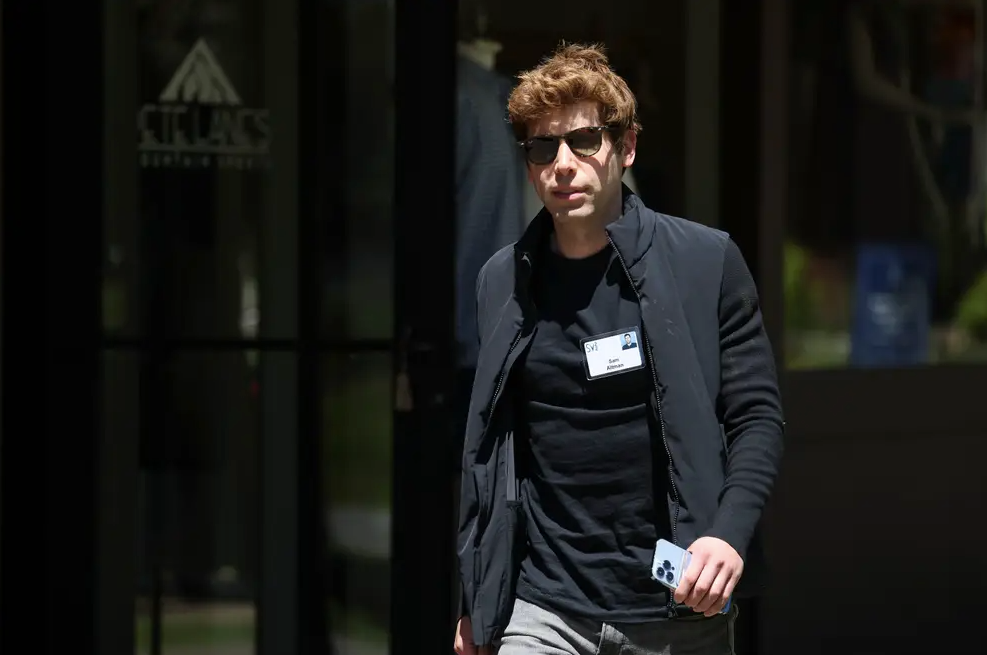|
Getting your Trinity Audio player ready...
|
In a groundbreaking deal that has nearly doubled its valuation, OpenAI, the artificial intelligence (AI) company behind ChatGPT, has reached a valuation of $157 billion (€142 billion), making it the third-largest venture-backed company in the world, behind SpaceX and ByteDance. This valuation comes after securing a massive $6.6 billion (€6 billion) investment, marking the largest venture capital deal ever.
The funding, led by Thrive Capital, also saw participation from major industry players, including Microsoft, Nvidia, SoftBank, Tiger Global, and MGX, an investment firm controlled by the United Arab Emirates (UAE).
The deal is not only significant for its size but also for the exclusivity clause imposed by OpenAI, which restricts investors from putting money into rival AI start-ups like Anthropic or xAI, the AI venture started by Elon Musk.
OpenAI’s Chief Financial Officer Sarah Friar emphasized the company’s growing global reach and influence, stating, “Every week, over 250 million people turn to ChatGPT, whether it’s to communicate in different languages or tackle complex research challenges.”
The funds raised will be pivotal in enabling OpenAI to further its AI research, expand computing capabilities, and develop advanced tools for solving the world’s most difficult problems, the company stated in a press release shared with Euronews Next.
Strategic Investment and Major Backers
The investors behind this massive funding round reflect OpenAI’s importance in the broader tech ecosystem. Notably, Microsoft, a key partner and investor in OpenAI, played a major role in orchestrating the deal. Microsoft’s influence over the AI company has been significant, especially in recent months when it intervened in an internal leadership crisis (discussed below).
Other major players like Nvidia—whose hardware is critical for running AI models—and SoftBank, which has a long history of backing disruptive technologies, further underscore the importance of OpenAI’s role in shaping the future of AI.
Interestingly, Apple reportedly withdrew from negotiations to participate in the funding round. While Apple has been a user of OpenAI’s technology, its decision not to invest could reflect concerns about competition or strategic priorities that differ from OpenAI’s.
AI Growth and Expansion: What’s Next for OpenAI?
With its valuation now soaring, OpenAI has signaled plans to accelerate its mission and invest heavily in research and development. Founded in 2015 by Sam Altman, the company has rapidly become one of the leading forces in generative AI (GenAI), with products like ChatGPT revolutionizing industries from education to healthcare.
OpenAI’s stated goal is to continue driving progress in AI personalisation, making learning more accessible, accelerating healthcare breakthroughs, and enhancing productivity across sectors.
With this new round of funding, OpenAI plans to focus on increasing its computing capacity—a necessary move to support the ever-growing demand for AI models like GPT-4. The company has consistently emphasized its commitment to solving complex global problems, a mission that now has significant financial backing to match.
Leadership Shifts and Internal Turmoil
While OpenAI is thriving financially, the company has faced its share of internal challenges. Last month, OpenAI made headlines when its Chief Technology Officer (CTO) Mira Murati resigned, prompting Sam Altman to send out a memo stating that OpenAI was “not a normal company.” This remark highlighted the unique pressure and scrutiny that come with operating at the cutting edge of AI technology.
The company experienced further internal strife when Altman was briefly ousted by OpenAI’s board, reportedly over concerns that his management style was too aggressive in rolling out new products, some of which raised safety concerns. The coup, however, was short-lived. After OpenAI employees threatened to leave, Microsoft, the company’s biggest investor, played a key role in bringing Altman back to his leadership position.
Altman’s return has restored some stability, but questions remain about the company’s future leadership and governance structure. There have been multiple reports that OpenAI is considering a transition into a for-profit benefit corporation, which would remove the company from the control of its non-profit board. This would be a significant shift, as OpenAI was originally founded as a non-profit organization with the mission of ensuring that artificial general intelligence (AGI) benefits all of humanity.
The Road Ahead: AI Regulation and Competitive Pressures
As OpenAI’s influence continues to grow, so does the pressure to balance innovation with responsibility. The rapid pace at which OpenAI has released new products—such as ChatGPT and the advanced AI models underpinning it—has raised concerns among some experts about the safety and ethical implications of AI.
Altman has publicly acknowledged these challenges, and the company has committed to advancing AI in a way that maximizes benefits while minimizing risks. However, the growing competition in the AI space—especially from companies like Anthropic, xAI, and Google DeepMind—means OpenAI must continue pushing boundaries to stay ahead.
This competition, paired with growing calls for AI regulation, especially from the European Union and the United States, will shape the company’s strategy moving forward. As regulators around the world examine the implications of AI on privacy, job displacement, and security, companies like OpenAI will need to collaborate with governments to ensure that AI is developed responsibly.
Conclusion: A New Chapter for OpenAI
OpenAI’s latest funding round and near-doubling of its valuation to $157 billion mark a historic moment for the AI industry. The company’s partnerships with major players like Microsoft, Nvidia, and SoftBank position it well to continue leading in the development of generative AI technologies that are reshaping industries globally.
However, with its leadership in flux, and growing concerns over the speed of AI deployment and regulation, OpenAI will need to navigate a complex landscape to achieve its ambitious goals.
